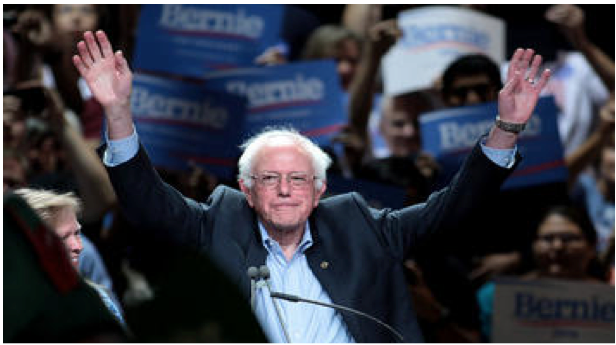Repeal and Replace vs. Repair and Improve?
THE DOCTOR IS IN--One of the nice things about "keeping up" on Facebook is that we bump into those bright minds that helped shape us in our developing years and, to our delight, we discover they really made something of themselves. Hence, when my old Jewish religious school classmate, Dr. Lori Lander Goodman, came up with the idea of "Repair and Improve" now that "Repeal and Replace" failed, I felt the need to continue with the theme of my last articles about the need to create a replacement for the ACA.
The American Health Care Act (AHCA) appears to have failed (for now), which might cause some gloating, anger, joy, and scorn (depending on where you are politically), but for those of us able to compartmentalize the political and the policy-making, and for those of us able to compartmentalize the ideology from the need to develop a coherent and sustainable health care policy...
... it's not over. It's really not. No need for joy, or anger ... just a willingness to accept a few hard truths, not the least of which there is a need to not make this problem (health care affordability and access) fixed in a manner that doesn't alienate large hunks of the general population.
Like it or not, it was a BIG, if not fatal, mistake for the Democratic Party of Nancy Pelosi, Harry Reid, and Barack Obama to create an Affordable Care Act (ACA) that was so partisan. It's easy to say that the GOP was the party of "no", but for those of us who remember through nonpartisan eyes it did appear that the Democrats were pretty quick to say "no" to any GOP ideas or additions.
So get over yourselves that the Democratic Party was great in establishing the ACA--look what happened to the makeup of Congress and state legislatures.
But ditto for those in the GOP--including and especially House Speaker Paul Ryan and President Trump, who darned well should have known better--than to create an AHCA that was as partisan as the ACA it was supposed to replace.
And why oh why was there such a rush? Just to say this was placed on the President's desk for signing by Easter? Did the public even understand it, let alone the House?
For example, only today did I get this summary, which probably would have made it easier to figure out what the heck the AHCA was.
Remember, Speaker Ryan, what happened when former Speaker Pelosi told the nation we had to pass something to know what was in it?
To Democratic partisans, they're relieved and overjoyed ... but the ACA is still spiraling down because of a lack of affordability and sustainability.
To conservative Republican/libertarian partisans, they're similarly relieved and overjoyed...but the nation is NOT going back to pre-ACA realities, and they've just threatened their own political dominance of the House in 2018.
And for those of us in the middle--whether it is Dr. Goodman (specializing in child abuse prevention and intervention) and myself (a dermatologist)--there's probably more confusion and concern as to how to get past this as a nation.
The overriding historical legacy of President Barack H. Obama should be, and probably will be, that the era of "doing nothing and letting market forces rule health care" is over.
It will be up to President Donald J. Trump to determine how to ensure how, or even if, market forces and government mandates can find an economically viable, and sustainable, medium.
The House Freedom Caucus and President Trump are not on good speaking terms right now, and it will be up to moderates, both Republican and Democrat, who value "deal-making" to step up and find common ground.
Meanwhile, President Trump will move on to tax reform, which is arguably what he should have focused on first. And no, I don't think that businesses, Wall Street, and individual taxpayers want to wait until August to find out which way our taxes will be going.
But as the door is opened by President Trump and Chief of Staff Reince Priebus to the Democrats to discuss health care reform it should be emphasized that there are a lot of Americans--mainly Democrat, but certainly many Republican, who do NOT want our federal deficit and debt repaired on the backs of the poor and in ill health.
Our economy is not where it should be, thanks to not just one but two past Presidents, and 2017 is the wrong year to tell everyone to "buck up" and "tighten their belts".
So where can a divided Republican party go to get past the health care issue to become the new "majority" instead of a "perpetual minority”?
Certainly, the GOP leadership and President Trump need to find some common ground, particularly on the one true safety net that has both saved many a patient's medical and financial life (to say nothing of their family's lives):
Medicaid.
When Medicaid provides a safety net and provides health for those with disastrous medical conditions, it's a wonderful thing. When Medicaid (called Medi-Cal) is abused by ne'er-do-wells and dished out to those not supposed to be on that form of government relief, it's a horrible thing.
More money to the sick? Certainly.
More money to the healthy? Certainly not.
And government oversight and mandates is NOT the same as creating a monstrous, expensive bureaucracy that should only be overseeing how state and local governments are operating the Medicaid program--and, more importantly, what those state and local governments are doing to get healthy Medicaid recipients OFF of that program.
Are the healthy and able-bodied required to work ten (or some other number) hours a week for their health care, paid for by the taxpayers? There are jobs they can and should be assigned to do, and they should either do those jobs or be sent to the county clinic for their free health care.
Are the Medicaid programs funded and operated well? Certainly, there's a growth industry in Medicaid who opposed the AHCA, but while they offer a host of excellent reforms for Medicaid, the state and local governments should incentivize healthy individuals to both get a job in order to KEEP their health care, and/or incentivize businesses to hire workers and offer benefits.
That's "incentivize" folks, not "beat down" businesses to offer benefits.
Which means goodbye business mandates, and hello business tax credits, to get more workers hired WITH benefits.
And which also means goodbye individual mandates, but offer incentives to have individuals get their own insurance...and offer more variety of plans between states as well as bare-boned plans that don't require couples in their 50's to purchase insurance that covers pediatric psychiatry.
The AHCA just went down ... for now ... but the ACA is also going down. They're going down.
But WE don't have to go down. Common ground is hard, but common ground provides incentives for us as a nation to help those who've been laid low for the mere "crime" of being sick ... and for giving a boot in the rear to those who are able to take care of themselves, and should have been taking care of themselves for many years now.
Whether it's "Repeal and Replace" or "Repair and Improve", the option of doing nothing cannot, and should not, ever be an option for the American people.
(Kenneth S. Alpern, M.D. is a dermatologist who has served in clinics in Los Angeles, Orange, and Riverside Counties. He is also a Westside Village Zone Director and Board member of the Mar Vista Community Council (MVCC), previously co-chaired its Planning and Outreach Committees, and currently is Co-Chair of its MVCC Transportation/Infrastructure Committee. He is co-chair of the CD11 Transportation Advisory Committee and chairs the nonprofit Transit Coalition, and can be reached at [email protected]. He also co-chairs the grassroots Friends of the Green Line at www.fogl.us. The views expressed in this article are solely those of Dr. Alpern.)
-cw

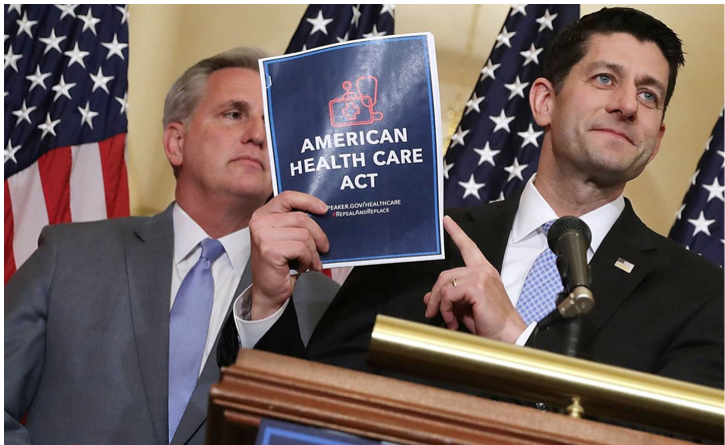
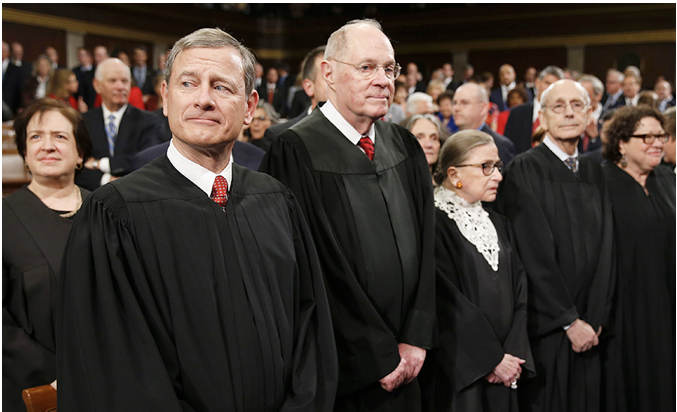
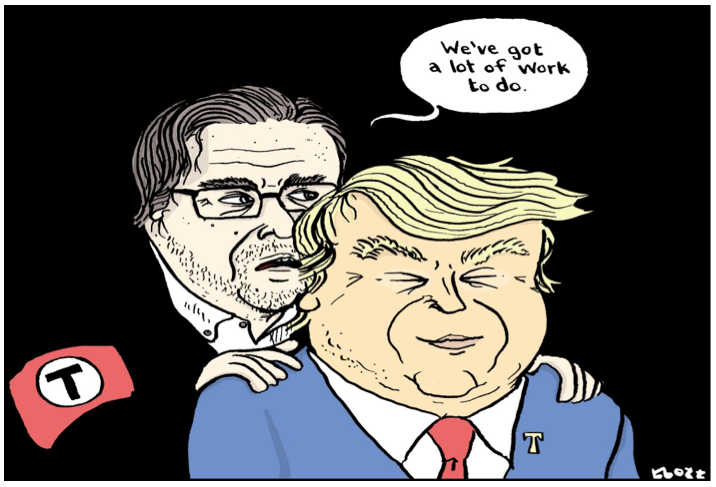
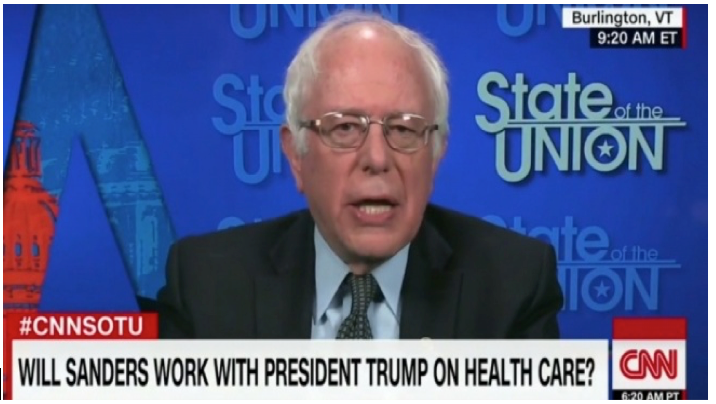
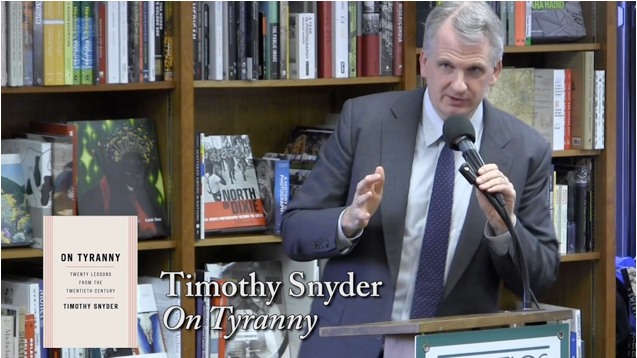








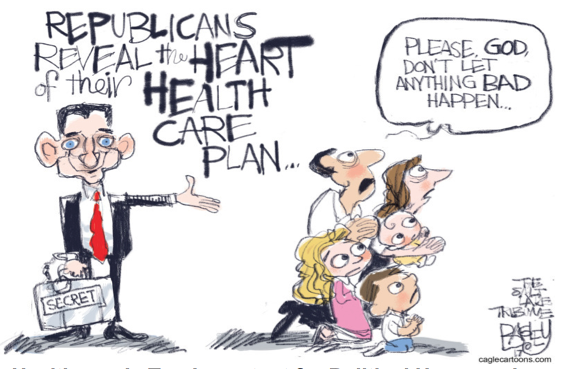


 Attempting to become Jackson-like, Donald Trump styles himself as the leader of a “populist” movement he energized with his “America First!” and “Make America Great Again!” slogans as he played on nativist sentiments. Such leanings are an identifying hallmark of Andrew Jackson, who shifted political power from the established elites to the ordinary voters, and played a leading role in granting all white males the right to vote, not just white male property owners. This was part of Jackson’s program of “Jacksonian Democracy” that morphed into the creation of the Democratic Party that, in turn, replaced Thomas Jefferson’s agrarian-based Democratic-Republican Party, changing American political history forever.
Attempting to become Jackson-like, Donald Trump styles himself as the leader of a “populist” movement he energized with his “America First!” and “Make America Great Again!” slogans as he played on nativist sentiments. Such leanings are an identifying hallmark of Andrew Jackson, who shifted political power from the established elites to the ordinary voters, and played a leading role in granting all white males the right to vote, not just white male property owners. This was part of Jackson’s program of “Jacksonian Democracy” that morphed into the creation of the Democratic Party that, in turn, replaced Thomas Jefferson’s agrarian-based Democratic-Republican Party, changing American political history forever. 


